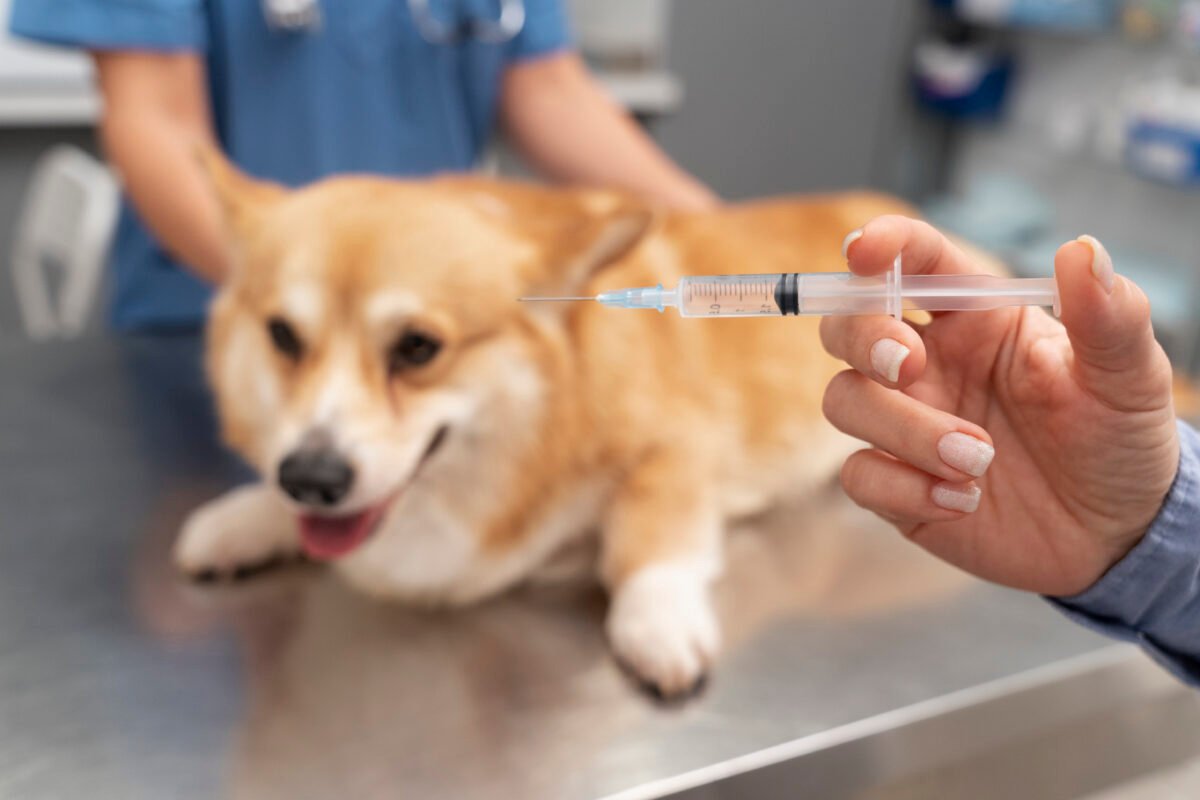
Vaccinations are an integral part of ensuring the health and well-being of our beloved pets. They not only protect animals from potentially fatal diseases but also contribute to the broader goal of public health by reducing the risk of zoonotic diseases. In this article, we will explore essential vaccinations for pets, their significance, and how to adhere to vaccination schedules effectively.
What Are Essential Vaccinations for Pets?
Essential vaccinations are those recommended by veterinarians to prevent severe or life-threatening diseases in pets. These vaccines are classified as “core” because they are necessary for all pets, regardless of lifestyle, geography, or other factors.
Examples of Essential Vaccines:
- Dogs:
- Rabies vaccine: Protects against rabies, a deadly virus transmissible to humans.
- Parvovirus vaccine: Prevents canine parvovirus, a highly contagious and often fatal disease.
- Canine distemper vaccine: Shields dogs from a viral disease affecting the respiratory, gastrointestinal, and nervous systems.
- Cats:
- Feline leukemia vaccine: Safeguards cats from this immunosuppressive virus.
- Rabies vaccine: Required for all cats to protect against rabies.
- Panleukopenia vaccine: Prevents feline distemper, a severe viral infection.
These vaccines form the foundation of a pet’s immunization program, tailored to their age, health, and risk factors.
Why Are Pet Vaccinations Important?
Vaccines play a vital role in keeping pets healthy by:
- Preventing Disease: Vaccinations reduce the risk of pets contracting serious diseases.
- Saving Lives: Many diseases targeted by vaccines, such as rabies and distemper, are fatal if left untreated.
- Protecting Communities: Vaccinating pets helps prevent the spread of zoonotic diseases to humans and other animals.
- Minimizing Healthcare Costs: Treating preventable diseases is often more expensive than the cost of vaccinations.
By protecting pets through immunization, we also create a safer environment for everyone in the household.
How to Follow Vaccination Schedules Effectively:
Adhering to a vaccination schedule is crucial for ensuring your pet remains protected throughout their life. Here are some tips to stay on track:
- Consult Your Veterinarian: Your vet will recommend a personalized vaccination schedule based on your pet’s age, lifestyle, and health condition.
- Keep Records: Maintain a vaccination record to track due dates for boosters.
- Schedule Annual Check-Ups: Regular visits to the vet ensure vaccines are up-to-date.
- Set Reminders: Use apps or calendars to remind you of upcoming vaccine appointments.
- Follow Booster Protocols: Some vaccines require periodic boosters to maintain effectiveness.
Adhering to veterinary vaccine protocols ensures long-term protection for your furry friend.
Common Misconceptions About Pet Vaccinations:
Despite their proven effectiveness, some myths about pet vaccinations persist. Let’s address a few:
- “Vaccines are unnecessary for indoor pets:
- Reality: Even indoor pets are at risk of exposure to diseases, especially rabies and respiratory infections.
- “Vaccines cause more harm than good:
- Reality: Vaccines undergo rigorous testing and are generally safe, with benefits far outweighing minimal risks.
- “One vaccine is enough for a lifetime:
- Reality: Most vaccines require boosters to maintain their effectiveness over time.
Providing accurate information helps pet owners make informed decisions about their pets’ health.
Maintaining Pet Health Beyond Vaccinations:
Vaccinations are just one component of a holistic approach to pet health. To keep your pets in optimal condition:
- Schedule regular annual pet health check-ups.
- Provide a balanced diet tailored to their needs.
- Ensure regular exercise and mental stimulation.
- Maintain parasite control measures (e.g., flea and tick prevention).
A combination of preventive care measures will maximize your pet’s health and well-being.
Conclusion:
Essential vaccinations for pets are a cornerstone of preventive health care, safeguarding animals from potentially deadly diseases and contributing to a healthier community. By adhering to recommended vaccination schedules and consulting your veterinarian, you can ensure your pet lives a long, happy, and healthy life.
FAQs
- What are the core vaccines for dogs and cats?
Core vaccines include rabies, parvovirus, and distemper for dogs, and rabies, feline leukemia, and panleukopenia for cats. - How often should pets be vaccinated?
Pets typically require annual vaccinations or boosters every 1–3 years, depending on the vaccine and your veterinarian’s advice. - Are vaccinations safe for pets with health conditions?
Most pets can safely receive vaccinations. Consult your veterinarian for advice specific to your pet’s health. - What happens if a pet misses a scheduled vaccine?
If a vaccine is missed, consult your vet immediately to reschedule and update your pet’s immunization record. - Can vaccines prevent all pet diseases?
While vaccines are highly effective, no vaccine offers 100% protection. Preventive care and a healthy lifestyle complement vaccination efforts.


